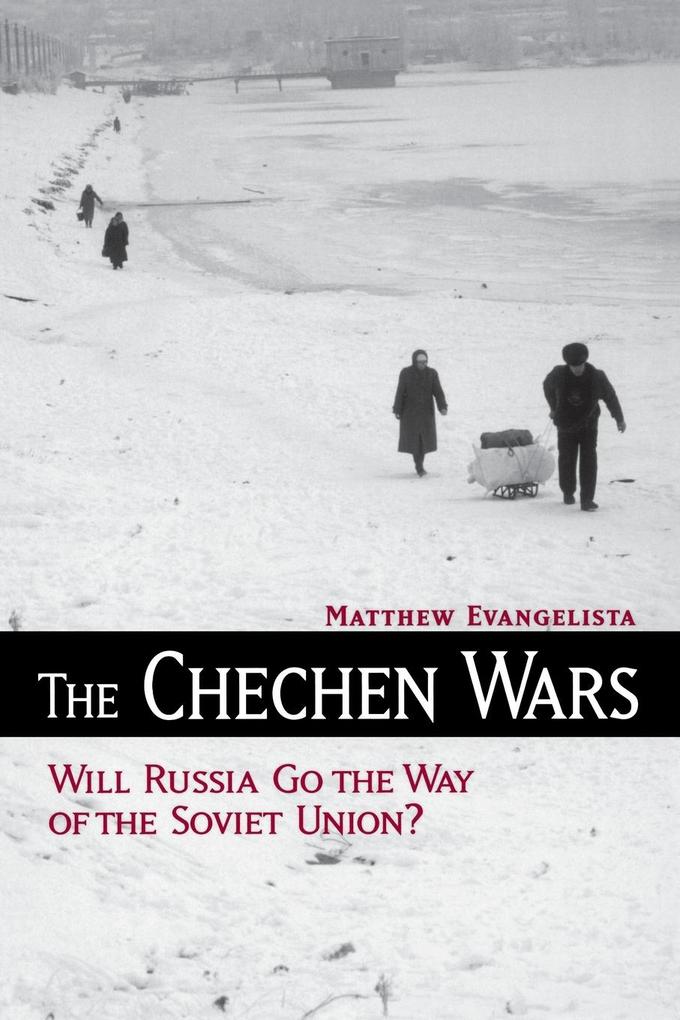
Zustellung: Sa, 28.06. - Mi, 02.07.
Versand in 6 Tagen
VersandkostenfreiBestellen & in Filiale abholen:
"
Following the breakup of the Soviet Union, Boris Yeltsin improvised a system of ""asymmetric federalism"" to help maintain its successor state, the Russian Federation. However, when sparks of independence flared up in Chechnya, Yeltsin and, later, Vladimir Putin chose military action to deal with a ""brushfire"" that they feared would spread to other regions and eventually destroy the federation. Matthew Evangelista examines the causes of the Chechen Wars of 1994 and 1999 and challenges Moscow's claims that the Russian Federation was too fragile to withstand the potential loss of one rebellious republic. He suggests that the danger for Russia lies less in a Soviet-style disintegration than in a misguided attempt at authoritarian recentralization, something that would jeopardize Russia's fledgling democratic institutions. He also contends that well-documented acts of terrorism by some Chechen fighters should not serve as an excuse for Russia to commit war crimes and atrocities. Evangelista urges emerging democracies like Russia to deal with violent internal conflict and terrorism without undermining the fundamental rights and freedoms of their citizens. He recommends that the United States and other democracies be more attentive to Moscow's violations of human rights and, in their own struggle against terrorism, provide a kind of role model."
Following the breakup of the Soviet Union, Boris Yeltsin improvised a system of ""asymmetric federalism"" to help maintain its successor state, the Russian Federation. However, when sparks of independence flared up in Chechnya, Yeltsin and, later, Vladimir Putin chose military action to deal with a ""brushfire"" that they feared would spread to other regions and eventually destroy the federation. Matthew Evangelista examines the causes of the Chechen Wars of 1994 and 1999 and challenges Moscow's claims that the Russian Federation was too fragile to withstand the potential loss of one rebellious republic. He suggests that the danger for Russia lies less in a Soviet-style disintegration than in a misguided attempt at authoritarian recentralization, something that would jeopardize Russia's fledgling democratic institutions. He also contends that well-documented acts of terrorism by some Chechen fighters should not serve as an excuse for Russia to commit war crimes and atrocities. Evangelista urges emerging democracies like Russia to deal with violent internal conflict and terrorism without undermining the fundamental rights and freedoms of their citizens. He recommends that the United States and other democracies be more attentive to Moscow's violations of human rights and, in their own struggle against terrorism, provide a kind of role model."
Produktdetails
Erscheinungsdatum
12. November 2002
Sprache
englisch
Seitenanzahl
260
Autor/Autorin
Matthew Evangelista
Verlag/Hersteller
Produktart
kartoniert
Gewicht
427 g
Größe (L/B/H)
229/152/15 mm
ISBN
9780815724995
Entdecken Sie mehr
Pressestimmen
"It is... well researched, drawing on both a sizeable secondary literature and numerous Russian language sources... his arguments are convincing and any who believe that Russia under Putin is still on a reform path or moving towards democracy must engage with the points raised in this work, as the war in Chechnya remains central to the development of post-communist Russia." --Paul Kubicek, Oakland University, International Affairs, 1/1/2004 "... provides a fascinating and well structured picture of the background for and events leading up to the two wars. Evangelista's work should be required reading for anyone with an interest in Russia and its relationships with its federal partners... This is an important book, and makes a significant contribution to the limited library of literature on Chechnya... It is not only for experts, even those who have a very limited knowledge of the situation will be enlightened by it." --Graham Dyson, Centre for Peacebuilding and Conflict, International Journal on World Peace, 12/1/2003 "[letter to editor]" --Matthew Evangelista, Foreign Affairs, 5/1/2003 "[Evangelista] offers one of the few original, systematic discussions of a question that has attracted mostly sloganeering from both supporters and opponents of Chechen independence." --Lawrence A. Uzzell, Chechnya Weekly, 2/20/2003 "A close, meticulous study of the root causes of the Chechen Wars of 1994 and 1999, and an informative, scholarly examination of the impact these conflicts had on both Chechnya and Russia." -- The Bookwatch, 4/1/2003 "Evangelista provides a clear, focused analysis of Russia's ongoing war in Chechnya -- why the two wars were launched (in 1994 and 1999) and what they imply for the Russian political system as a whole." --P. Rutland, Wesleyan University, Choice "[An] impressive new book... a compelling synthesis of new insights from Russian soldiers, scholars, and policymakers." --Charles King, Georgetown University, Foreign Affairs, 3/1/2003
Bewertungen
0 Bewertungen
Es wurden noch keine Bewertungen abgegeben. Schreiben Sie die erste Bewertung zu "Chechen Wars" und helfen Sie damit anderen bei der Kaufentscheidung.









